- Home
- James Phelan
Kill Switch
Kill Switch Read online
Praise for James Phelan and his work
“James Phelan has produced a big, juicy, rollicking tale in the spirit of Robert Ludlum. We haven’t seen an international thriller like this for a long time.”—Jeffery Deaver on Patriot Act
“James Phelan is one of the hottest thriller writers to arrive on the scene in years.”—Vince Flynn
“James Phelan has earned a new avid fan.”—Steve Berry
“Vivid and suspenseful . . . an espionage novel with grunt.”—Sydney Morning Herald on The Spy
“Walker’s so tough he’s got muscles in his spit.”—West Australian
“A finely honed story which proves the thriller genre is alive . . . Can’t wait for the next one.”—Sunday Times on Fox Hunt
“Phelan gets the balance absolutely right . . . An absolute must-read for fans of Clancy, Ludlum et al.”—Bookseller & Publisher on Patriot Act
“Like all good thrillers . . . Phelan keeps the reader guessing right up to the last page.”—The Age on Patriot Act
“Phelan’s techno-thriller is in the same league as Clive Cussler and Tom Clancy.”—Sun-Herald on Blood Oil
James Phelan is the bestselling and award-winning author of twenty-eight novels and one work of non-fiction. From his teens he wanted to be a novelist but first tried his hand at a real job, studying and working in architecture before turning to English literature, spending five years at a newspaper and obtaining an MA and PhD in literature. James has written five titles in the Lachlan Fox thriller series, and the Alone trilogy of young adult post-apocalyptic novels. The ex-CIA character of Jed Walker was first introduced in The Spy, which was followed by The Hunted, Kill Switch and Dark Heart. James has also written a fourteen-book adventure series for Scholastic, titled The Last Thirteen. He has been a full-time novelist since the age of twenty-five, and spends his time writing thrilling stories and traveling the world to talk about them.
To find out more about James and his books, visit:
www.jamesphelan.com
Follow and interact with James:
www.facebook.com/realjamesphelan
www.twitter.com/realjamesphelan
www.instagram.com/realjamesphelan
www.whosay.com/jamesphelan
BY JAMES PHELAN
The Jed Walker books
The Spy
The Hunted
Kill Switch
Dark Heart
The Lachlan Fox books
Fox Hunt
Patriot Act
Blood Oil
Liquid Gold
Red Ice
The Alone series
Chasers
Survivor
Quarantine
New York • London
© 2015 by James Phelan
Cover design by Luke Causby
Cover photographs courtesy Arcangel Images
First published in the United States by Quercus in 2017
All rights reserved. No part of this book may be reproduced in any form or by any electronic or mechanical means, including information storage and retrieval systems, without permission in writing from the publisher, except by reviewers, who may quote brief passages in a review. Scanning, uploading, and electronic distribution of this book or the facilitation of the same without the permission of the publisher is prohibited.
Please purchase only authorized electronic editions, and do not participate in or encourage electronic piracy of copyrighted materials. Your support of the author’s rights is appreciated.
Any member of educational institutions wishing to photocopy part or all of the work for classroom use or anthology should send inquiries to [email protected].
e-ISBN 978-1-63-506023-2
Distributed in the United States and Canada by
Hachette Book Group
1290 Avenue of the Americas
New York, NY 10104
This book is a work of fiction. Names, characters, institutions, places, and events are either the product of the author’s imagination or are used fictitiously. Any resemblance to actual persons—living or dead—events, or locales is entirely coincidental.
www.quercus.com
Contents
Prologue
Chapter 1
Chapter 2
Chapter 3
Chapter 4
Chapter 5
Chapter 6
Chapter 7
Chapter 8
Chapter 9
Chapter 10
Chapter 11
Chapter 12
Chapter 13
Chapter 14
Chapter 15
Chapter 16
Chapter 17
Chapter 18
Chapter 19
Chapter 20
Chapter 21
Chapter 22
Chapter 23
Chapter 24
Chapter 25
Chapter 26
Chapter 27
Chapter 28
Chapter 29
Chapter 30
Chapter 31
Chapter 32
Chapter 33
Chapter 34
Chapter 35
Chapter 36
Chapter 37
Chapter 38
Chapter 39
Chapter 40
Chapter 41
Chapter 42
Chapter 43
Chapter 44
Chapter 45
Chapter 46
Chapter 47
Chapter 48
Chapter 49
Chapter 50
Chapter 51
Chapter 52
Chapter 53
Chapter 54
Chapter 55
Chapter 56
Chapter 57
Chapter 58
Chapter 59
Chapter 60
Chapter 61
Chapter 62
Chapter 63
Chapter 64
Chapter 65
Chapter 66
Chapter 67
Chapter 68
Chapter 69
Chapter 70
Chapter 71
Chapter 72
Chapter 73
Chapter 74
Chapter 75
Chapter 76
Chapter 77
Chapter 78
Chapter 79
Chapter 80
Chapter 81
Chapter 82
Chapter 83
Chapter 84
Chapter 85
Chapter 86
Chapter 87
Chapter 88
Chapter 89
Chapter 90
Chapter 91
Chapter 92
Chapter 93
Chapter 94
Chapter 95
Chapter 96
Chapter 97
Chapter 98
Chapter 99
Chapter 100
Chapter 101
Chapter 102
Chapter 103
Epilogue
PROLOGUE
Fade in.
It’s an interior shot. Dark. The camera finds a man on a seat. He is slightly to the left of frame. We see him head to toe. He is slouched. Not big, not small. Average. His hair is longer than short, blacker than brown. He wears wire-framed glasses. The scene is poorly lit. We cannot see his face in detail.
The scene changes. The lens or camera moves toward the seated man. It’s centered on the figure, from the waist up. The lighting is better now, the focus too. He is in his thirties. Fine lines around his mouth and eyes. Two days’ stubble. Sweat beads on his forehead, then slides down onto his nose. His glasses slip. A lip is swollen and cut.
The man pushes his glasses back to their position on the bridge of his nose. His nose is straight, never broken, but the viewers will not tak
e much notice of that.
They won’t, because they’ve just seen something else.
His hands. They moved together, as one, even though he only used one finger to push the glasses back.
They moved as one because they are connected at the wrist, by handcuffs.
It’s then that the man’s outfit makes more sense, and those watching will make the connection.
He is wearing an orange jumpsuit. A prisoner.
But this man is no prisoner of the law, and all of a sudden the audience gets it.
They have seen footage like this before. From Syria and Iraq and other places where nothing good comes of such an image.
This is a hostage situation. Propaganda. The audience will now know that the man seated is there not of his own volition. He is captive. But what will happen next? Should they look away? Will they see the captors? Will there be a beheading?
No. It’s not like that.
This man? They’re making him do something.
And he is about to talk, to the camera. There are unseen people around him, those who must be forcing him to do this, those who gave him that fat lip and the bruise coming up on his cheek. That’s what the audience at home will think, that’s what the world media will say: this poor guy has been worked over and they’re playing with him.
But it’s worse than that. It’s worse because as bad as it seems for this man, it’s going to be just as bad for those watching. What this scene is about today? It will take up all the air time for the next thirty-six hours.
Because what the captive man is about to say, what and who he is, will irrevocably change the world. All within the next day and a half. Forever.
1
Walker exhaled. Inevitability . . .
The CIA taught Jed Walker how to travel. How to remain inconspicuous. Avoid capture. Prior to that, military service taught Walker how to kill a man with nothing but his bare hands, and that’s all he had at his disposal right now, having just passed through airport security at LAX. Well, that’s not exactly true, he thought, in hindsight, watching the two men approach. He had his small backpack, which contained a change of clothes and toiletries. A few items would do. A toothbrush through the eye socket into the brain. The straps of the backpack could be used to choke a man. He had a paperback novel in there with an orange cover that he’d found in his hotel room that morning—and from the few pages he’d read during the cab ride to the airport, it could probably bore them to death.
A few decent options, but none was a good one right now.
He made a mental checklist of the possibilities around him. Steel-framed chairs. Laminated, sharp-edged tabletops. Metal stands in gift shops. Any number of items from said gift shops. The overpriced food from the restaurants. The fast food—he could force-feed these two guys a couple of foie-gras geese and watch them have coronaries. Gavage, it was called, but in France they used feeding tubes and corn and fattened the geese up for seventeen days then slaughtered them at four months. Funny how the Europeans had such strict laws for some things. At any rate, Walker didn’t have seventeen days, let alone four months. A glass beer bottle to the temple would be quicker. A twist of a neck.
But not now. Inevitability, and all that.
For Walker, a life on the outer had honed his thinking. Improvising. Making do. Surviving. To use what was at hand and to adapt on the fly and do whatever it took to see one more day.
He knew from the scene in front of him that he only had seconds of freedom remaining. Maybe thirty. He was trapped and he had little choice but to take what was coming.
Walker knew that none of his evasion training would come into play today. It would not help, because today he was a target. Not randomly selected. Not pulled aside for conspicuous behavior. The men who came for him knew who he was. They had purpose. A singular goal.
His detention.
So. Cut and run, or stand and fight? Neither option good. Not here. Not against two uniformed TSA officers. One had his hand on his holstered Glock. The other had a taser drawn in his dominant hand, hanging by his side. They only had eyes for Walker.
It was inevitable.
2
The two men dressed as TSA officers found Walker with ease. They knew what he looked like because they had seen a photo of him. They knew what he was capable of because they had read a brief summary of his physicality and experience. They had both served in Special Forces units, but their target today had done that too—and then some. They knew it was him because he was six-three and 230 pounds and he moved with the physicality of a pro athlete. He was thirty-nine years old and in his physical prime; statistically, he’d never be faster or stronger than he was now. They knew he had about twenty years’ experience with the military and CIA doing special ops work. Rated beyond excellent in hand-to-hand combat and the use of firearms. Capable. A man not to be underestimated. Which is why they had their weapons ready. Their orders were simple: apprehend and render him to another country.
•
Hands on holstered weapons made it clear to Walker that these guys were not here to chat. They were not sent to relay a message or warning about his mission. They were here to detain him.
And he had a plane to catch.
Walker was in LAX’s terminal six. He had already passed security, so turning back wasn’t an option. And there were cameras everywhere. Locked doors and security up the wazoo. So, running for it was not an option either.
Damn.
But he remained calm, because that was his general disposition and because Buddha once observed that inward calm cannot be maintained unless physical strength is constantly and intelligently replenished. Walker had not read much of Buddha, and his mental image of the deity wasn’t exactly the symbol of physical peak conditioning, but he’d heard that titbit from a member of the Gurkha Regiment, and they were among the toughest soldiers he had ever met. The remark had come after the soldier, serving in the British Army, had disarmed two insurgents trying to gain entry to Baghdad Airport. Neither insurgent survived the encounter, or kept their head. Walker learned never to pick a fight with a Buddhist.
With running ruled out, Walker was left with two choices.
The first was to fight. Put these two guys down and run; hope to get away. But these TSA officers were ready for him, and back-up would be on hand within seconds. LAPD and the TSA’s own heavily armed response units would be minutes away, tops.
He could see the cafe just twenty paces ahead, where he had planned to wait for his boarding call over a couple of strong coffees, and maybe even read the newspaper. The paper could wait, but the caffeine he needed. Long night. Long week. Big days and weeks ahead.
Walker sighed. Relaxed his shoulders. Decision made. No point fighting.
Which left one option.
Give himself up to detention.
So, Walker relaxed and took what was coming. It was inevitable. He watched the two federal officers approach, a few yards apart and coming at him from the side. He put his backpack on the floor by his feet and kept his hands in clear view, his arms loose and hanging by his sides. One of the TSA guys, the one with a hand on a taser, kept approaching while the other, with his hand on the butt of his service-issue Glock, slowed and took a step to Walker’s side.
Five seconds of freedom remained.
Whatever this was, Walker was certain that he would miss his flight, which was boarding in twenty minutes. How often were the flights to Alaska? He had no idea. Every couple of hours, he figured, tops. With oil and gas prices so low, he saw no good reason for workers to be flooding into the state. Lumber and fishing crews would be year-round or seasonal, not some kind of fly-in-fly-out types with any regularity. That left tourism and those visiting family and friends, and there couldn’t be much call for that, especially just as winter had so recently ended.
Walker was confident that he could be out of here within two hours. Three, tops. He would phone a friend, and that friend would place a call, and then more phone calls would be made down
the chain until word filtered down to these two front-line guys. The officers would apologize, he’d be issued a new plane ticket and retrieve his papers and backpack and be on his way. He’d board a flight to Alaska, where he had plans to avert a terrorist attack. Call it two to three hours, beginning to end.
But it still didn’t feel right, and he still wanted coffee, and a good fight would wake him up good and proper, that’s for sure.
The TSA officers slowed as they neared, watching Walker with intense curiosity. The one with the hand on the Glock looked around. No one batted an eyelid as they passed, regular people wheeling their carry-on baggage, drinking coffee from Styrofoam cups. In their eyes, just another random stop-and-search. Thank 9/11 and the Boston bombing and recent events in New York and St. Louis for that. A couple of wars and the Patriot Act played a part too. Just another day at LAX.
The two uniformed officers stopped just short of arm’s reach from Walker.
“Josiah Walker,” the taser wielder said. “Place your hands on your head. We’re bringing you in.”
3
Walker weighed it up.
Still no good option. These two guys had to be the cream of TSA officers, big and tough, near to zero body fat and muscles that bulked out their uniforms. Each was just the other side of thirty. Definitely ex-military. And that he’d been called Josiah, which was fine because it was on his passport and driver’s license, but no one called him that, aside from his mother, and thinking of her made him a little sad, just for a half second, then that turned to anger and frustration at the delay, and that ticked him off.
Walker said, “Can I at least get a coffee first?”
No answer.
Walker was led toward a blank door that simply stated: “Unauthorized access prohibited.” He ran through a list in his mind, the CIA paper he’d helped draft a long time back for operatives being taken to security screening at airports—how to evade such scrutiny, and, when taken to secondary screening, how to get out with your cover identity intact.
Confirmed or suspected government or military affiliation almost certainly raises the traveler’s profile. Walker’s passport and papers had none of that—they were new, organized by the Vice President not long ago, replacing the counterfeit ones Walker had commissioned in Croatia. Airport officials receive advance information on arriving passengers from airlines through an advance-passenger information system and passenger name records. APIS information, which enables an advance check against watch lists, includes passenger name, date of birth, sex, passport details and secondary contact information.

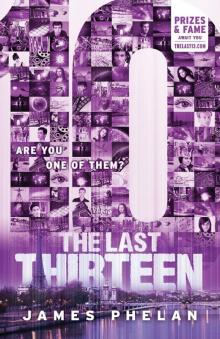 10
10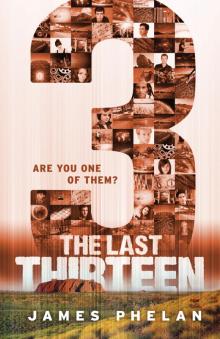 3
3 Survivor
Survivor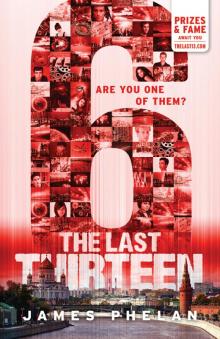 6
6 The Hunted
The Hunted Quarantine
Quarantine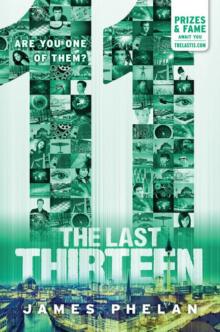 11
11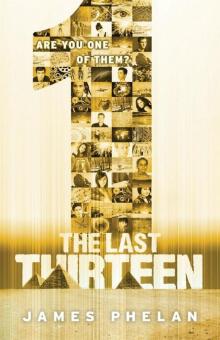 The Last Thirteen - 1
The Last Thirteen - 1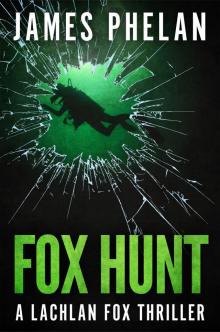 Fox Hunt
Fox Hunt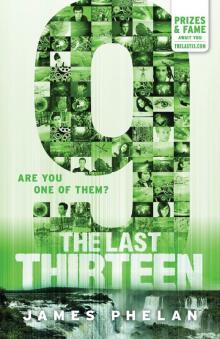 9
9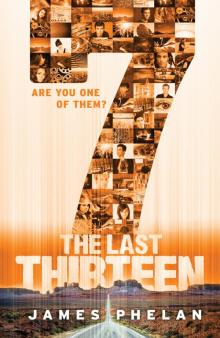 7
7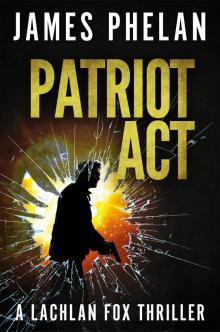 Patriot Act
Patriot Act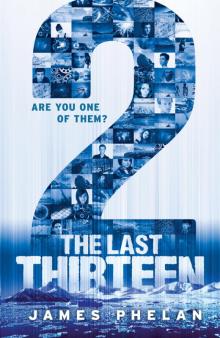 2
2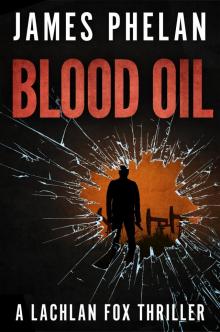 Blood Oil
Blood Oil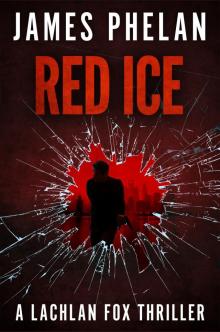 Red Ice
Red Ice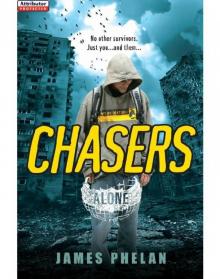 Chasers
Chasers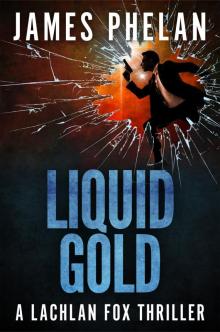 Liquid Gold
Liquid Gold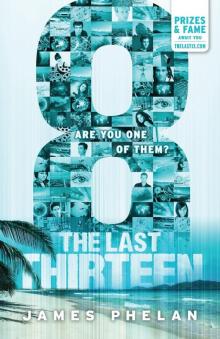 8
8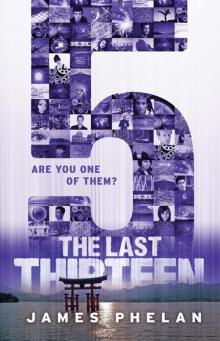 5
5 The Spy
The Spy Kill Switch
Kill Switch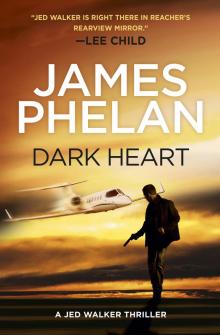 Dark Heart
Dark Heart